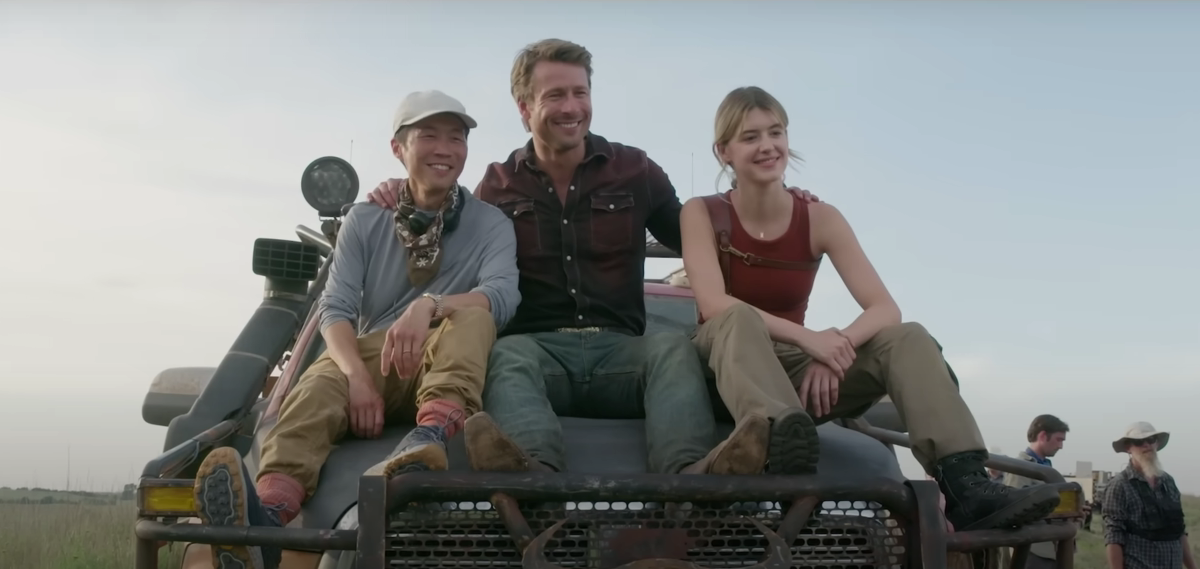
I feel Ben Affleck’s pain.
The actor found out he had a slave-owning ancestor while filming PBS’s “Finding Your Roots” show. He “lobbied” the show’s producer to keep the information out of the final product. Last week he released a statement via Facebook saying it was because he “felt ashamed” and the slavery connection “left a bad taste” in his mouth. Good for him. Good people should have a visceral, emotional reaction to such news.
I had a similar, albeit non-televised, experience.
Growing up, my family paid homage to an illustrious ancestor by the charming moniker of C. Montaville Flowers. My grandmother’s grandfather, he was an actor on the famed Chautauqua Circuit, delivering Shakespeare and Dickens to genteel Midwesterners in posh pavilions. He was also a politician. In the days before radio, he worked for Teddy Roosevelt, delivering speeches on behalf of the candidate. He later moved to Southern California and presided over a salon of sorts with artsy people thinking big thoughts. He unsuccessfully ran for office, but kept a finger in California politics. He was a Progressive, sending his daughters to Stanford University when such things were considered an extravagant waste.
Or so the story went.
Great-Grandpa, the Neo-Nazi
Imagine my surprise when I googled C. Montaville and found him cited, approvingly, on neo-Nazi websites. Turns out the man was a leading eugenicist of his day.
Eugenicism, for those who have forgotten, is racism with a scientific veneer. Using nostril size or skull width, it seeks to differentiate races and then rank them. Unlike more aggressive eugenicists such as Adolph Hitler or Planned Parenthood founder Margaret Sanger, C. Montaville was a soft eugenicist. He didn’t want anyone murdered. He just wanted the Japanese sent back where they came, to ensure that no darker-skinned race sullied the pure white bloodstream through intermarriage, and white people to have a lot of babies to overwhelm the less desirables.
In this, he echoed his employer, Teddy Roosevelt, and other leading thinkers of the day on both sides of the Atlantic.
What a hollow, disgusting ideology, even more so shrouded in an aura of piano-graced reception rooms and upper-crust salons. Eugenicism reached its logical end far from the lily-adorned tents of Chautauqua in the gas ovens of Auschwitz.
I often disagree with Affleck politically, but admire his depth of knowledge, his dedication to digging into issues instead of regurgitating talking points, and his intelligence. So from one shamed descendant to another, here’s my advice.
Five Ways to Find Peace
Own it. This isn’t going away. It’s part of the history that led to you. Digging into family history is a double-edged sword: The dashing uncle who turns out to have been a molester, the honored Civil War soldier who actually was a deserter, the quirky great-great-aunt who, it turns out, ran a brothel in the Wild West (we have one of those, too). Humanity is grand and inspiring, but it’s also ugly and horrible. This is what you will find among both the living and the dead. Why should your line be any different?
Learn about it. History doesn’t happen in a vacuum. Human beings are complicated. C. Montaville was, judging by his letters, a warm and loving father who treated daughters as fully intelligent members of the human race. He was kind and generous, learned and responsible. Seeing people as full people and a product of their times doesn’t excuse their evil behavior, but does round out the picture.
Don’t own it. Your family, whether it be one generation away or ten, is not you. You define who you are, not your genetic line. That’s what the eugenicists got wrong. And it’s at the very heart of America. We are the first society on earth to enshrine in our DNA that each man and each woman defines themselves for themselves, not by his or her class rank or pedigree.
Learn from it. C. Montaville sincerely and earnestly advocated an evil thing. The key here is the ability of human beings to deceive themselves. He sincerely thought he was working for a better world. He was sincerely wrong. We are no different today. We could be wrong, tragically, horribly wrong. History, if anything, teaches humility. What will history see when they look back at us? Where are our blind spots? No doubt it will be as complex as looking back at a slave-owning ancestor.
Talk about it. Leave behind the simplistic talking points. No, you don’t owe reparations. No, it doesn’t mean that everything you own was built on the backs of slaves. Yes, there was horrible injustice that benefited some white people. Yes, the DNA of America was muddled and murky, but still powerful. This is complicated. But only by digging into it can we learn from the mistakes of the past. This is the blessing and the curse of the past. Good luck, Ben.









